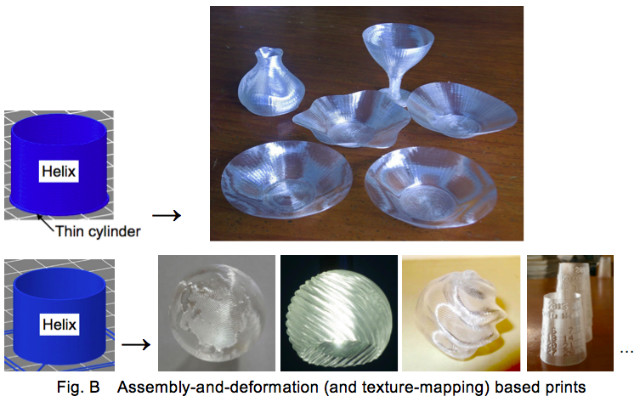Kanada, Y., XIIIV Generative Art Conference (GA 2015), 2015-12.
[ English page ]
[ Paper PDF file ]
[ Slides PDF file ]
Abstract: 3D models are usually designed by 3D modelling tools, which are not suited for generative art. This presentation proposes two methods for designing and printing generative 3D objects. First, by using a turtle-graphics-based method, the designer decides self-motion (self-centered motion) of a turtle and print a trajectory of the turtle as a 3D object (Fig. A). The trajectory is printed using a fused-deposition-modelling (FDM) 3D printer, which is the most popular type of 3D printer. Second, by using the assembly-and-deformation method, the designer assembles parts in a palette, each of which represents stacked filaments, applies deformations to the assembled model, and prints the resulting object by an FDM 3D printer. The designer can also map textures, characters, or pictures on the surface of the object. Various shapes can be generated by using the assembly-and-deformation method. If the initial model is a thin helix with a very low cylinder (i.e., an empty cylinder with a bottom), shapes like cups, dishes, or pods with attractive brilliance can be generated, and a globe and other shapes can be generated from a helix (Fig. B).
研究テーマ紹介: 3D 造形技術


